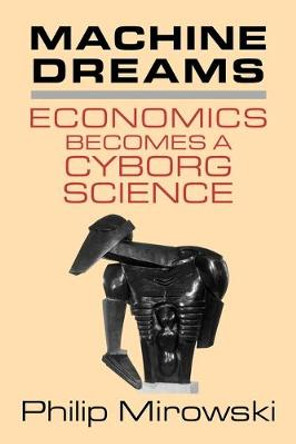Description
Mirowski contends that neoclassical economists have persistently presumed and advanced an "effortless economy of science," a misleading model of a self-sufficient and conceptually self-referential social structure that transcends market operations in pursuit of absolute truth. In the stunning essays collected here, he presents a radical critique of the ways that neoclassical economics is used to support, explain, and legitimate the current social practices underlying the funding and selection of "successful" science projects. He questions a host of theories, including the portraits of science put forth by Karl Popper, Michael Polanyi, and Thomas Kuhn. Among the many topics he examines are the social stabilization of quantitative measurement, the repressed history of econometrics, and the social construction of the laws of supply and demand and their putative opposite, the gift economy. In The Effortless Economy of Science? Mirowski moves beyond grand abstractions about science, truth, and democracy in order to begin to talk about the way science is lived and practiced today.
A compilation of essays by the author that reveals the value for science studies of examples arising within the history of economics
About the Author
Philip Mirowski is Carl Koch Professor of Economics at the University of Notre Dame. Among his books are Machine Dreams: Economics Becomes a Cyborg Science; More Heat Than Light: Economics as Social Physics, Physics as Nature's Economics; and Science Bought and Sold: Essays in the Economics of Science (coedited with Esther-Mirjam Sent).
Reviews
"The Effortless Economy of Science is an outstanding contribution to the philosophy of science, history of economics, and science studies. Philip Mirowski shows why work in each of these fields can be better understood by looking through the lens of other fields."-Bradley W. Bateman, Gertrude B. Austin Professor of Economics, Grinnell College
Book Information
ISBN 9780822333227
Author Philip Mirowski
Format Paperback
Page Count 472
Imprint Duke University Press
Publisher Duke University Press
Weight(grams) 671g





